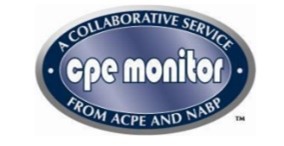Announcer:
Welcome to CME on ReachMD. This episode is part of our MinuteCE curriculum.
Prior to beginning the activity, please be sure to review the faculty and commercial support disclosure statements as well as the learning objectives.
Dr. He:
Hello, this is CME on ReachMD and I'm Dr. Ruth He, a GI Medical Oncologist at the Georgetown University Hospital from Washington, DC. In this brief lecture, I will take you through some pivotal data evaluating first-line bevacizumab/atezolizumab in advanced HCC.
And the combination of bevacizumab/atezolizumab was FDA approved based on the data supported by IMbrave 150 study, and this is a global randomized Phase 3 study, enrolled over 500 patients. And patients are randomized for combination of atezolizumab and bevacizumab and used sorafenib as the control arm. And the study evaluate overall survival and progression-free survival as coprimary endpoint.
And this study, which had met the dual primary endpoint with an improved overall survival and progression-free survival.
In this study, close to 50% of patients had viral hepatitis B infection as the risk factor. About 20% with HCV- induced HCC, and about 30% of patients had non-viral hepatitis as the risk factors. And the study was well balanced. The study met its primary study endpoint, improved the median overall survival from 13.4 months treated by sorafenib to 19.2 months treated by bevacizumab/atezolizumab. The reported 18-month overall survival rate was 52% versus 40%. And the progression-free survival was improved from 4.3 months to 6.9 months.
If you look at the response rate, the confirmed response rate for the bevacizumab/atezolizumab combination was 30%, and 11% from sorafenib-treated patients. 8% of the patients receiving bevacizumab/atezolizumab achieved a complete response. And when we look at the safety data and, so, the reported treatment related Grade 3-4 adverse events was about 43%. Those are more serious adverse events from the combination of bevacizumab/atezolizumab. And if you look at the adverse events in addition to the immune-related side effects, and we also have seen the side effects from bevacizumab treatment, which is anti-VEGF therapy. So, there is increased rate of hypertension and proteinuria. And so, given this is a combination with anti-VEGF therapy, it is crucial for those patients to have endoscopy to evaluate varices, and because if patient has severe varices, that will increase the risk of bleeding, which can be very devastating.
So in summary, the combination of atezolizumab plus bevacizumab was, approved and supported by the IMbrave-150 study and showed a response rate of 30% and median overall survival of 19 months. And so we have to pay attention to the side effects of the combination. Patients should have endoscopy. Patients with cirrhosis should have an endoscopy to evaluate the varices because that put patient at high risk of bleeding while you're giving patient anti-VEGF therapy.
Additionally, patient should have urinalysis checked because bevacizumab can increase the risk of having proteinuria. So, in patients with hypertension, diabetes, they could have some low levels of proteinuria, and the anti-VEGF therapy can increase the risk and those patients with proteinuria, and they need to have serial urinalysis to follow up on those proteinuria levels.
And, well, my time is up. I hope I've given you something to think about. Thank you so much for listening.
Announcer:
You have been listening to CME on ReachMD. This activity is provided by Total CME, LLC and is part of our MinuteCE curriculum.
To receive your free CME credit, or to download this activity, go to ReachMD.com/CME. Thank you for listening.


 In support of improving patient care, Global Learning Collaborative (GLC) is jointly accredited by the Accreditation Council for Continuing Medical Education (ACCME), the Accreditation Council for Pharmacy Education (ACPE), and the American Nurses Credentialing Center (ANCC) to provide continuing education for the healthcare team.
In support of improving patient care, Global Learning Collaborative (GLC) is jointly accredited by the Accreditation Council for Continuing Medical Education (ACCME), the Accreditation Council for Pharmacy Education (ACPE), and the American Nurses Credentialing Center (ANCC) to provide continuing education for the healthcare team.


